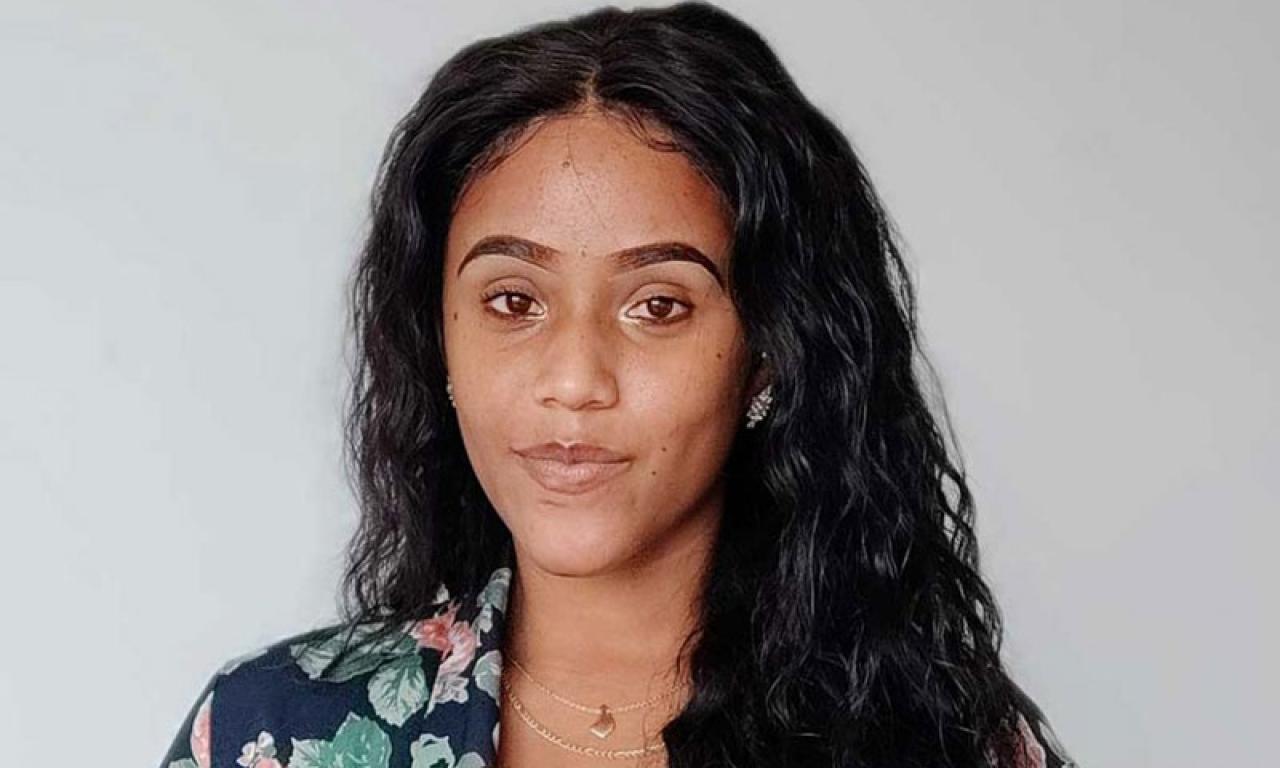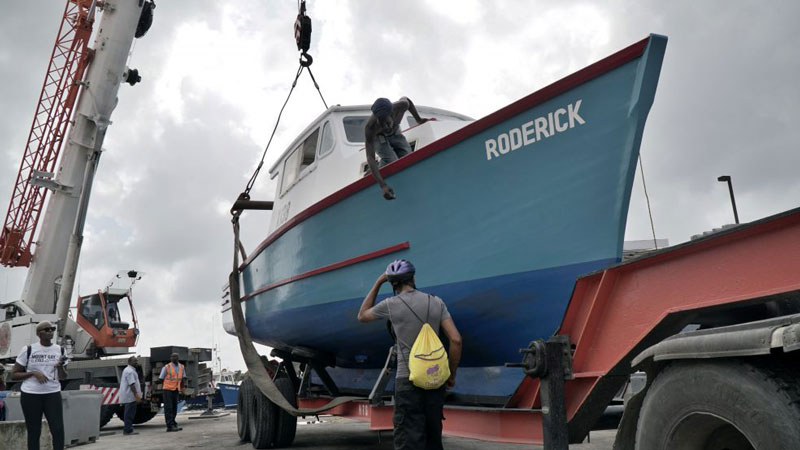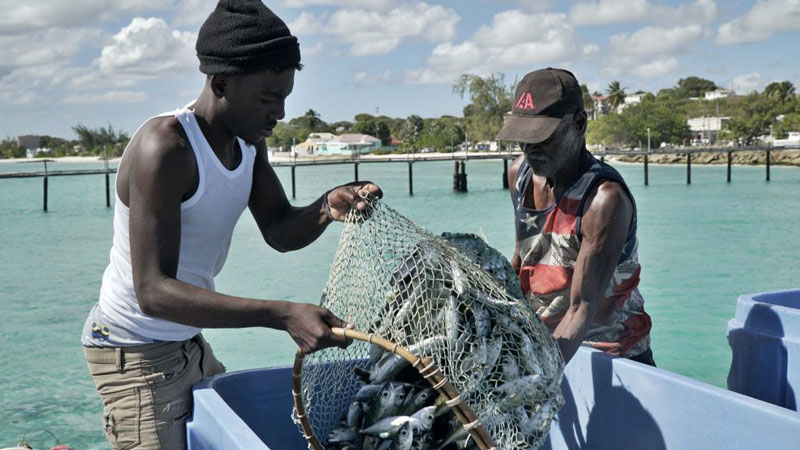
Kristie Alleyne, a Ph.D. Candidate at the World Maritime University (WMU) and formerly a Research Assistant at the Centre for Resource Management and Environmental Studies (CERMES) was a contributing author to the IHH Barbados case study. She was recently awarded a Ph.D. Scholarship for the Closing the Circle Program at WMU in Sweden. Her research focuses on understanding the effects of sargassum [seaweed] influx events on Caribbean fishers and finding management solutions to address the social-ecological challenges.
Illuminating Hidden Harvests (IHH): The contribution of small-scale fisheries to sustainable development is a collaborative study led by the UN Food and Agriculture Organization, Duke University, and WorldFish. In this series, we profile some of the more than 300 experts from over 50 countries who contributed to the 58 country and territory case studies and thematic studies included in the IHH research, due out in 2021.
Kristie Alleyne, a Ph.D. Candidate at the World Maritime University (WMU) and formerly a Research Assistant at the Centre for Resource Management and Environmental Studies (CERMES) was a contributing author to the IHH Barbados case study. She was recently awarded a Ph.D. Scholarship for the Closing the Circle Program at WMU in Sweden. Her research focuses on understanding the effects of sargassum [seaweed] influx events on Caribbean fishers and finding management solutions to address the social-ecological challenges.
Tell us about the role and contributions of small-scale fisheries in Barbados that the IHH case study will highlight?
Small-scale fisheries in Barbados harvest a diverse array of living marine resources. These resources help to support many livelihoods on the island and provide a much-valued food source. However, this contribution is often misreported (underreported). I believe the IHH study can help identify the full array of contributions and, by extension, help with the development of the fisheries sector in Barbados.
Why do you believe the lHH study is important?
The study has the potential to highlight the diverse contributions of small-scale fisheries globally, which could inform policymakers on the importance of small-scale fisheries and increase the development of the sector.

What is new in the approach that the IHH study is taking to understand small-scale fisheries in Barbados?
The study not only works directly with stakeholders to record the contribution of the fisheries sector, but it also examines drivers of change and key indicators that are important to consider when implementing management initiatives.
What were the biggest challenges for your country team in completing the IHH Barbados case study?
Data collection proved to be the biggest challenge. The data collected for Barbados was collected with the Barbados fisheries sector’s help, including the government. However, the data collected did not always match the detailed format requested by the IHH study. For example, one of the data sheets requested each species to be broken down into total catch per year by boat type. Although it may seem like a simple request, coastal fishers in Barbados catch multiple species and sell them to consumers as ‘pot-fish.’ In cases like these, we could record the weight and selling price of the total catch, but not for the individual species. Also, fishers on the three boat types identified in Barbados catch a variety of species. A long-liner may leave shore with the intention of catching tuna, but if presented with an opportunity to catch something else, the fisher will take that opportunity. All catches are utilized, and in that sense, there is no large concern about bycatch or wastage. Practices like these made it difficult to take the data from the Fisheries Division dataset and import it into the tables required for the IHH case study.
In your opinion, how will the IHH study be used in Barbados?
The study will be extremely beneficial for the Fisheries Division’s future plans and management initiatives. Highlighting the diverse contributions of small-scale fisheries will identify the contributions that are often overlooked/missed. This could increase investment opportunities for the sector and improve the livelihoods of those who rely on the sector.
Do you think that the IHH findings will lead to any positive or negative impact on small-scale fisheries, food security, or your country’s environment? In what way?
I hope it will have a positive impact. It will definitely highlight data gaps that the country can use to improve its data collection processes and fishery sector development. This study can also help implement the Small-Scale Fisheries Guidelines in small island developing states (SIDS) like Barbados.

What can be done now to ensure the IHH study and your work here has the most significant effect?
After completion of the project, it is important to ensure the information is funneled back to the key stakeholders who made the study possible. Most of the fisherfolk in Barbados will not read the final reports of this study, and it is not because they do not want to. Most of the time, findings from a study such as this are reported in very technical publications. Although these technical publications are significant for policymakers and scientists, this information also needs to be translated to the fisherfolks who work in the sector every day and play a critical management role. The IHH team should work with the individual case study teams to develop strategies that allow key stakeholders to fully benefit from this study’s findings.
How can research like IHH help achieve the SDGs, particularly around eradicating poverty and ending hunger in developing countries?
This study can help identify better management solutions that involve both government and fisherfolks of both genders, thus contributing to SDG 14 and 5. Revealing the hidden harvests of small-scale fisheries can help policymakers and funding organizations to see the true contributions of small-scale fisheries in SIDS and highlight the need for investment opportunities. Better management initiatives for the sector can help increase job opportunities within the sector, lead to better harvesting practices and reduce food import bills by increasing the sustainable production of this food source.
What have you learned while undertaking this study?
During data collection, it became evident that the data collection process in Barbados could use some modification to fully capture the contributions of small-scale fisheries. I hope this is something we work on in the coming years to help with the development of the fisheries sector; however, we do have resource constraints.
